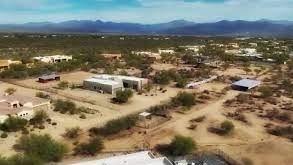
The water crisis in the Rio Verde Foothills has been the political football that keeps getting punted back and forth.(get up to date here). Politicians at all levels of government have weighed in, and the result has been slow progress. It now appears as though the stand-off is in its final stages, as the city of Scottsdale has voted to resume water delivery to the embattled area.
However, as is the case for many votes, the interesting aspects are to be found in the details, such as how councilmembers voted, their statements and their amendments. And this particular instance provided plenty of interesting information about what is happening behind the scenes.
First comes the amendment proposed by Mayor David Ortega requiring the standpipe district, the water district created in order to be the entity that makes decisions on behalf of the Rio Verde Foothills residents to come up with a “traffic mitigation plan” for any potential traffic issues. Traffic has polled as a significant concern for voters in the upcoming election, so wittingly or not this is a politically cagey move by the Mayor who is obviously running for re-election.
Not everyone is on board with traffic mitigation as a concern though; standpipe district board member Kent Thomas noted that the route is “kind of isolated – not a lot of homes around it. I’m scratching my head as to the (traffic) impact.” Also notable was the statement of concern about traffic mitigation from councilmember Tammy Caputi; as she is widely assumed to be running for Mayor, she is naturally less inclined to agree with Ortega and instead find ways to differentiate herself.
Another interesting development was Councilmember Barry Graham’s amendment to strike a line that would allow for the agreement to be renewed after the expiration of the deal in 2025. He indicates a willingness to give tough love to the district and prompt them to ween themselves off of the city. Also notable (although not surprising) development was Mayor Ortega’s parting shots at the county, calling the standpipe water board “a novel government entity and they are doing this in spite of the fact that the board of supervisors did not step up on this,” to which his foil Supervisor Thomas Galvin said that they “did step up on this issue.” It is unlikely that they will be getting each other Christmas cards this year.
But regardless of the political implications and jockeying for soundbites and attention, who are the biggest winners in this development? The residents of the Rio Verde Foothills, as Thomas estimates that the water will begin flowing by the end of the month at a very reasonable price. For a community that has been somewhat held hostage for quite some time now, a community that has had more questions than answers, few deserve a positive outcome more than them.

